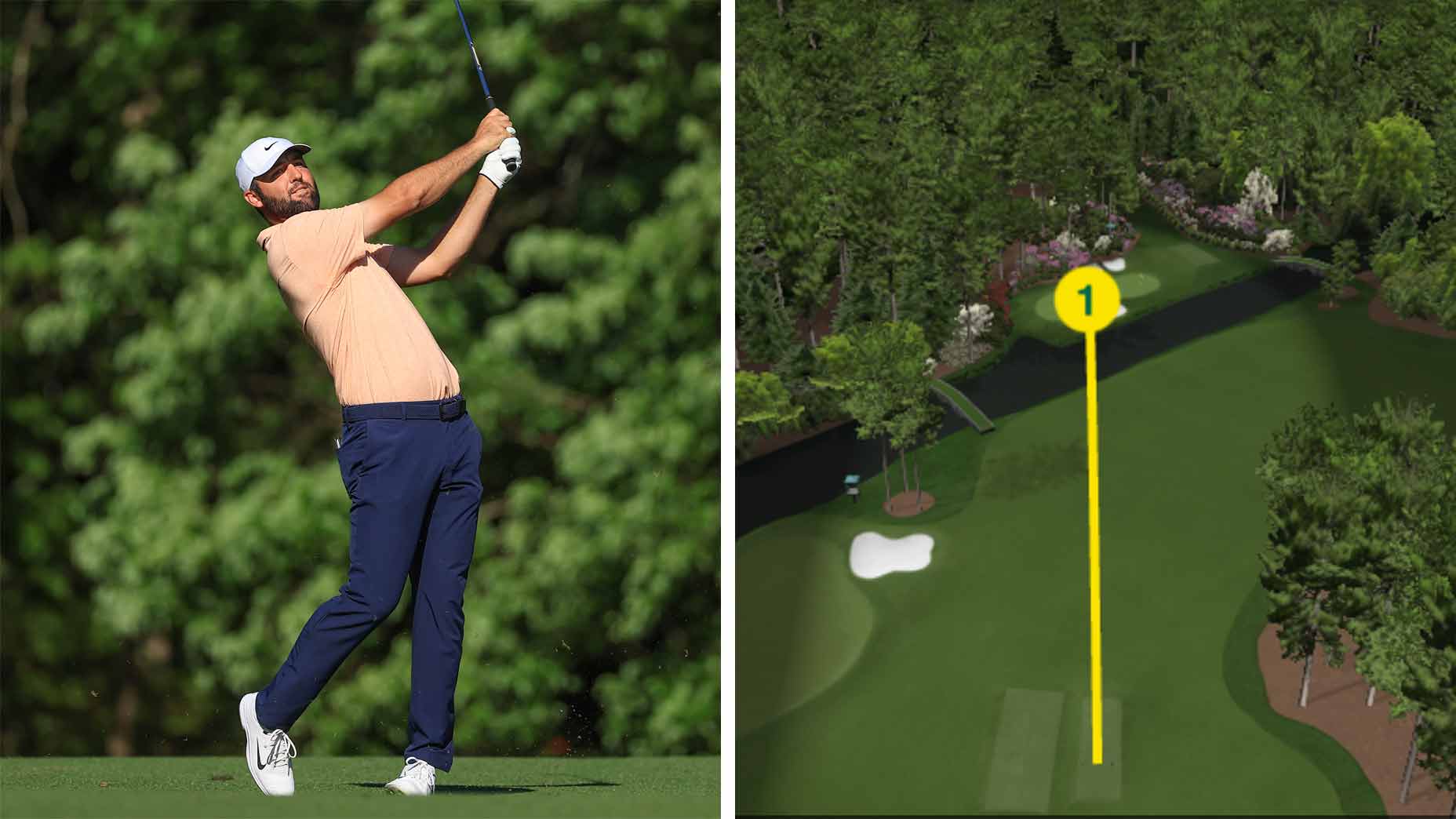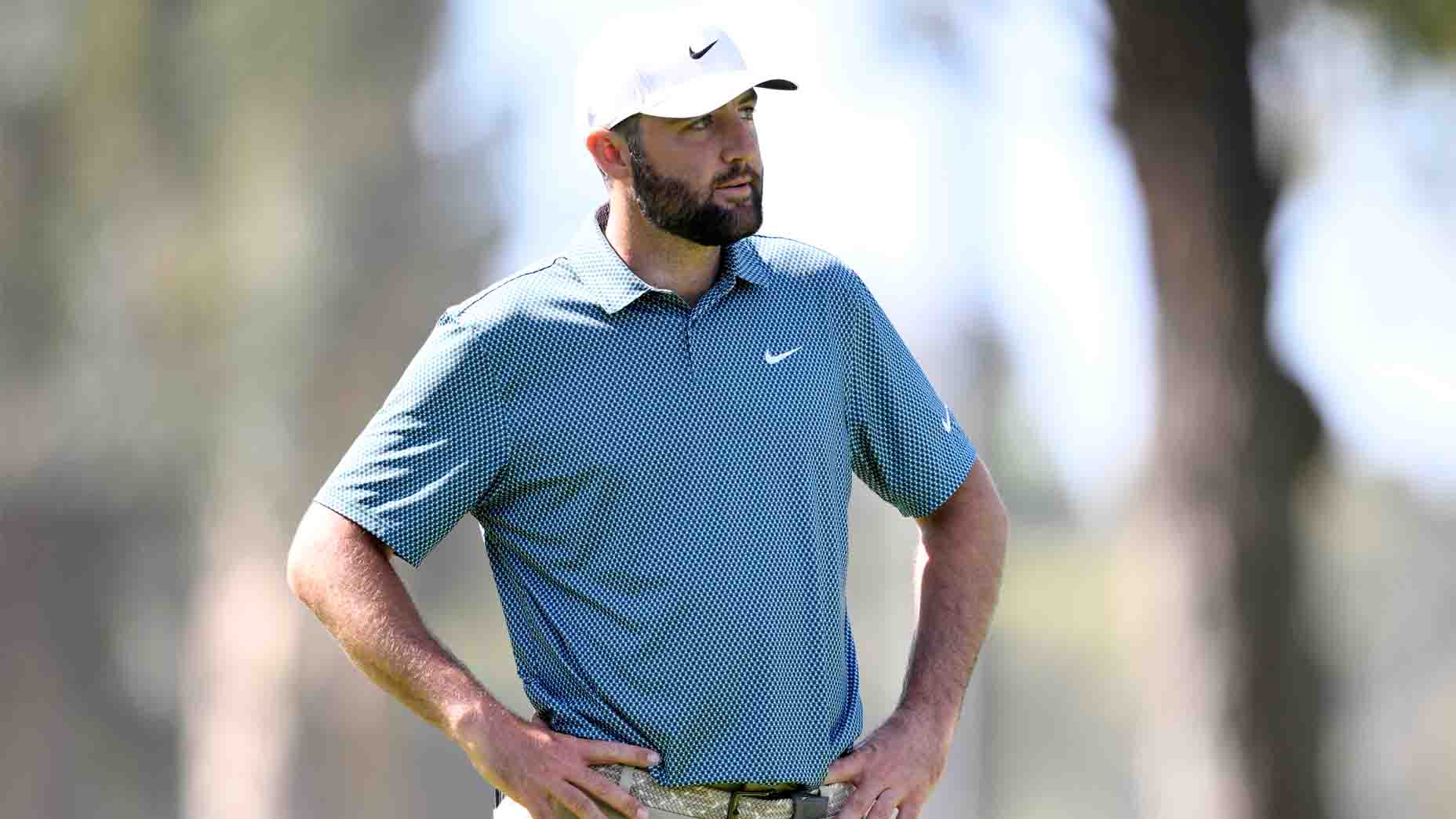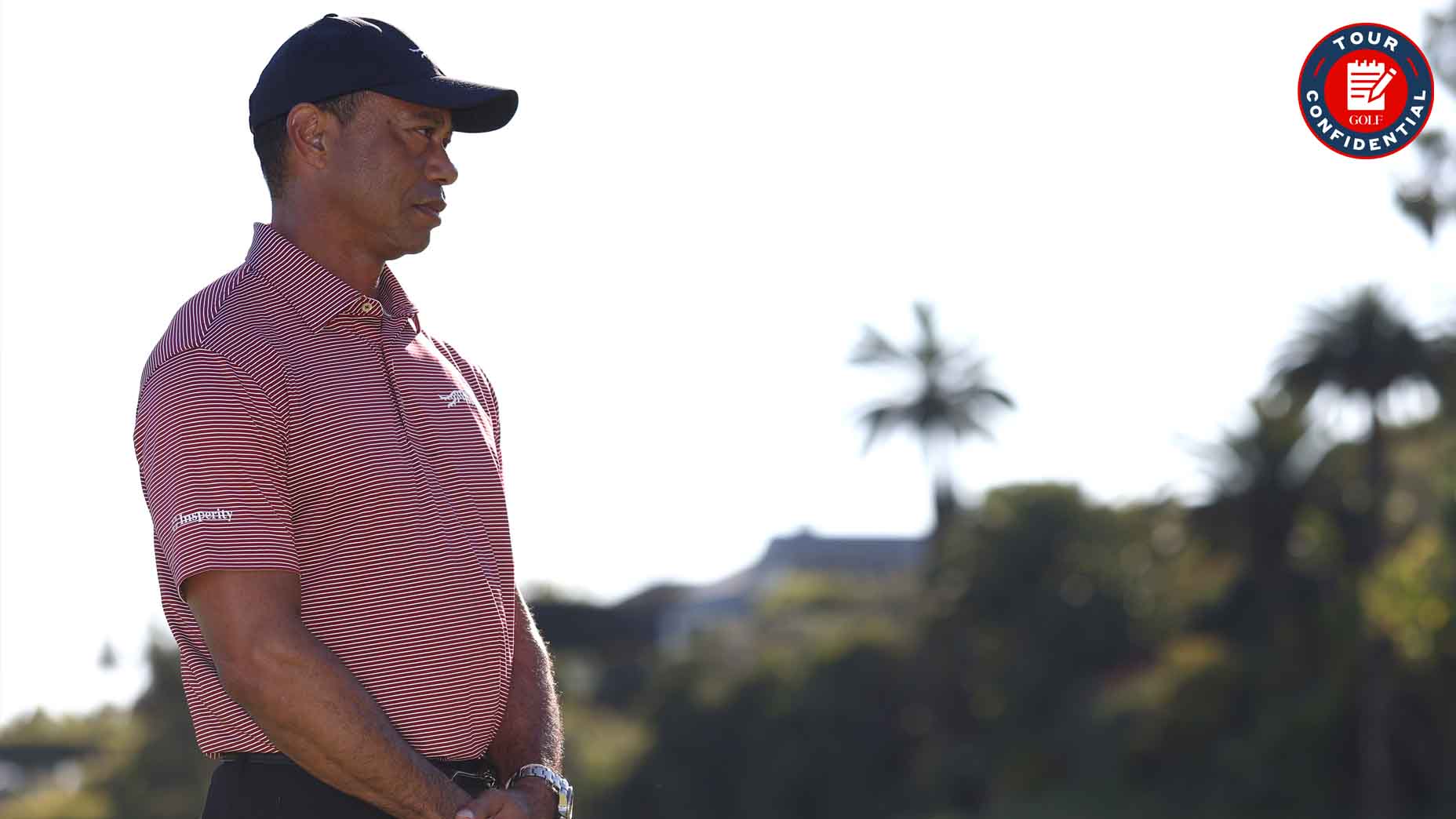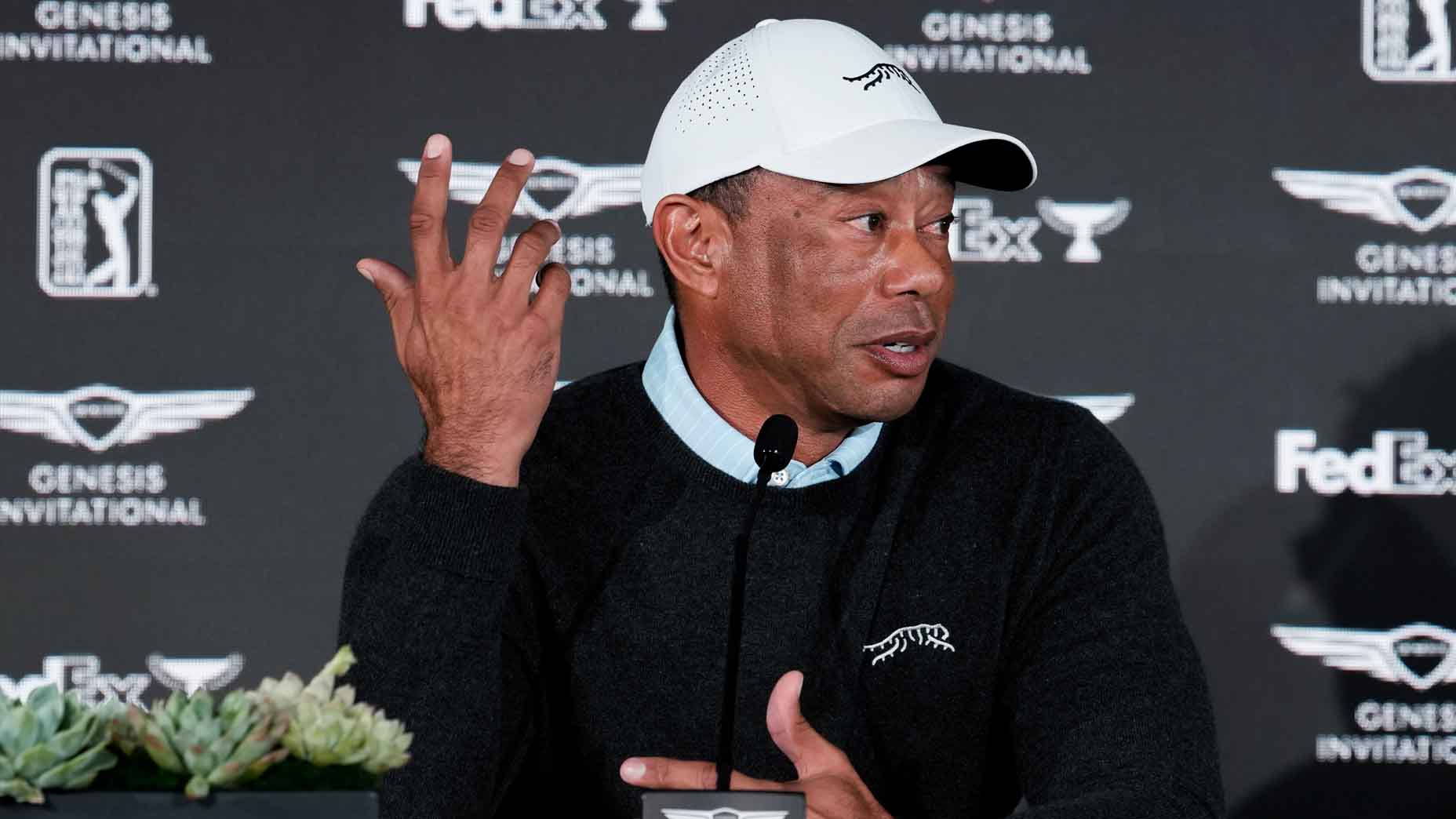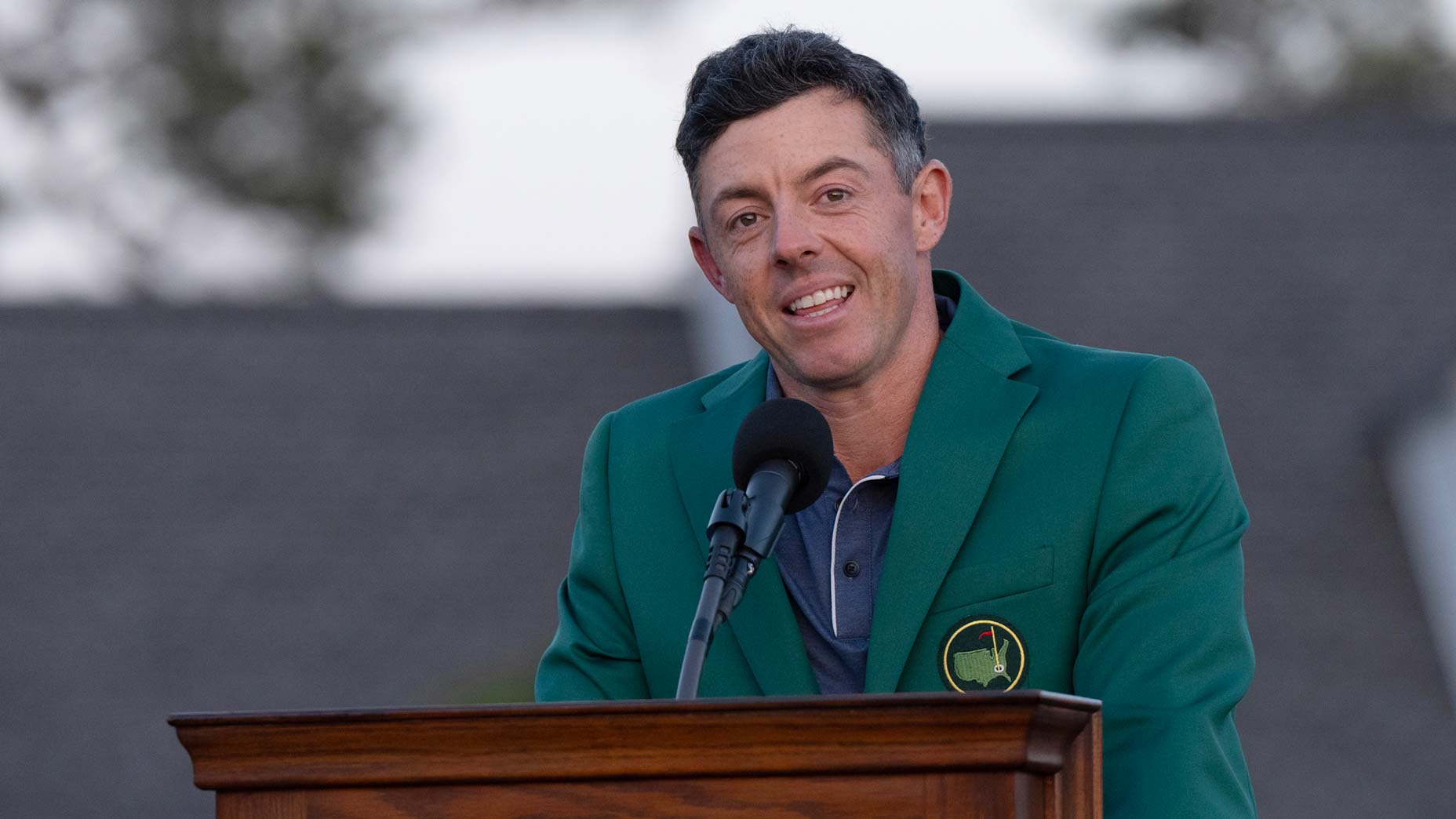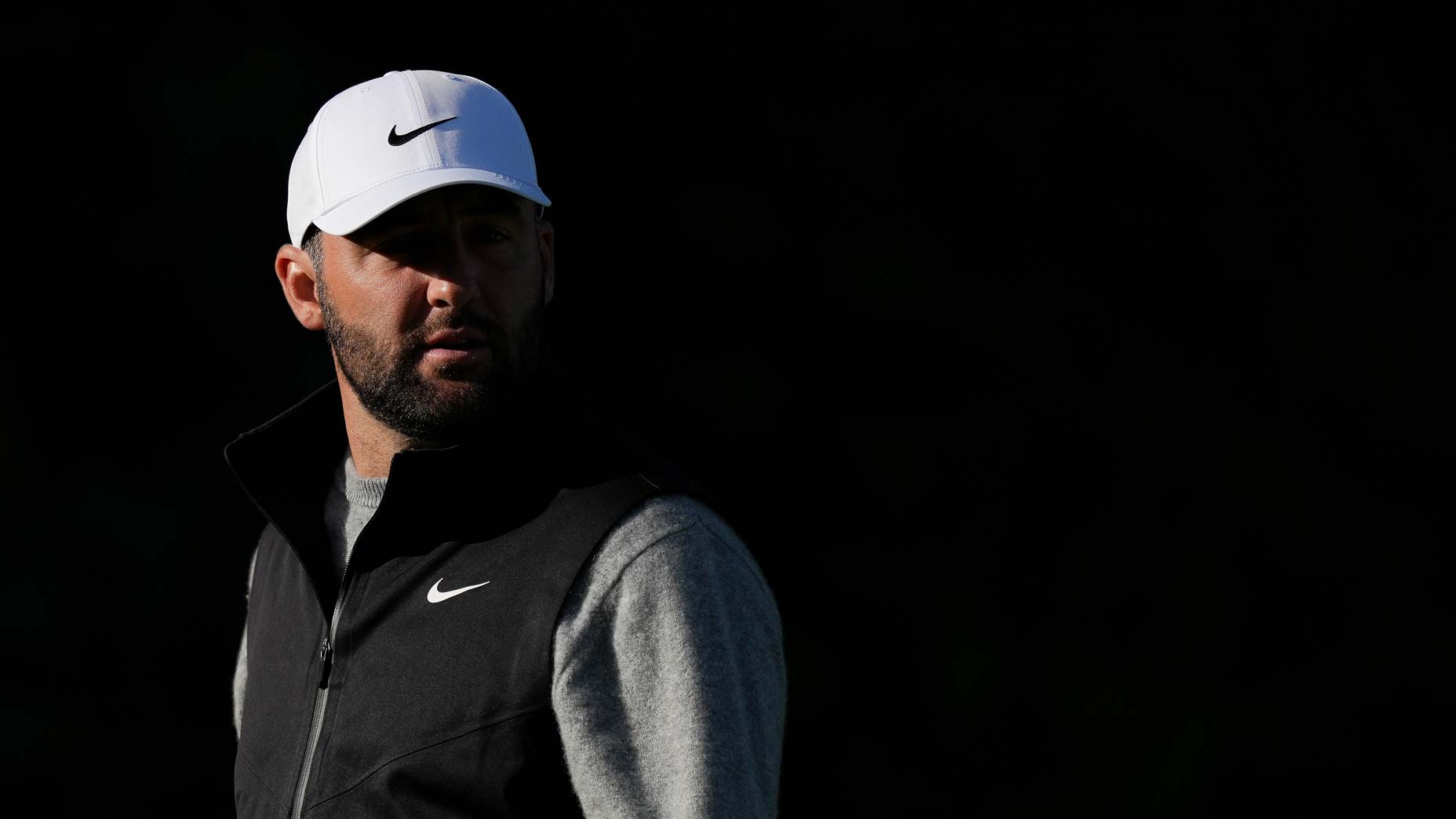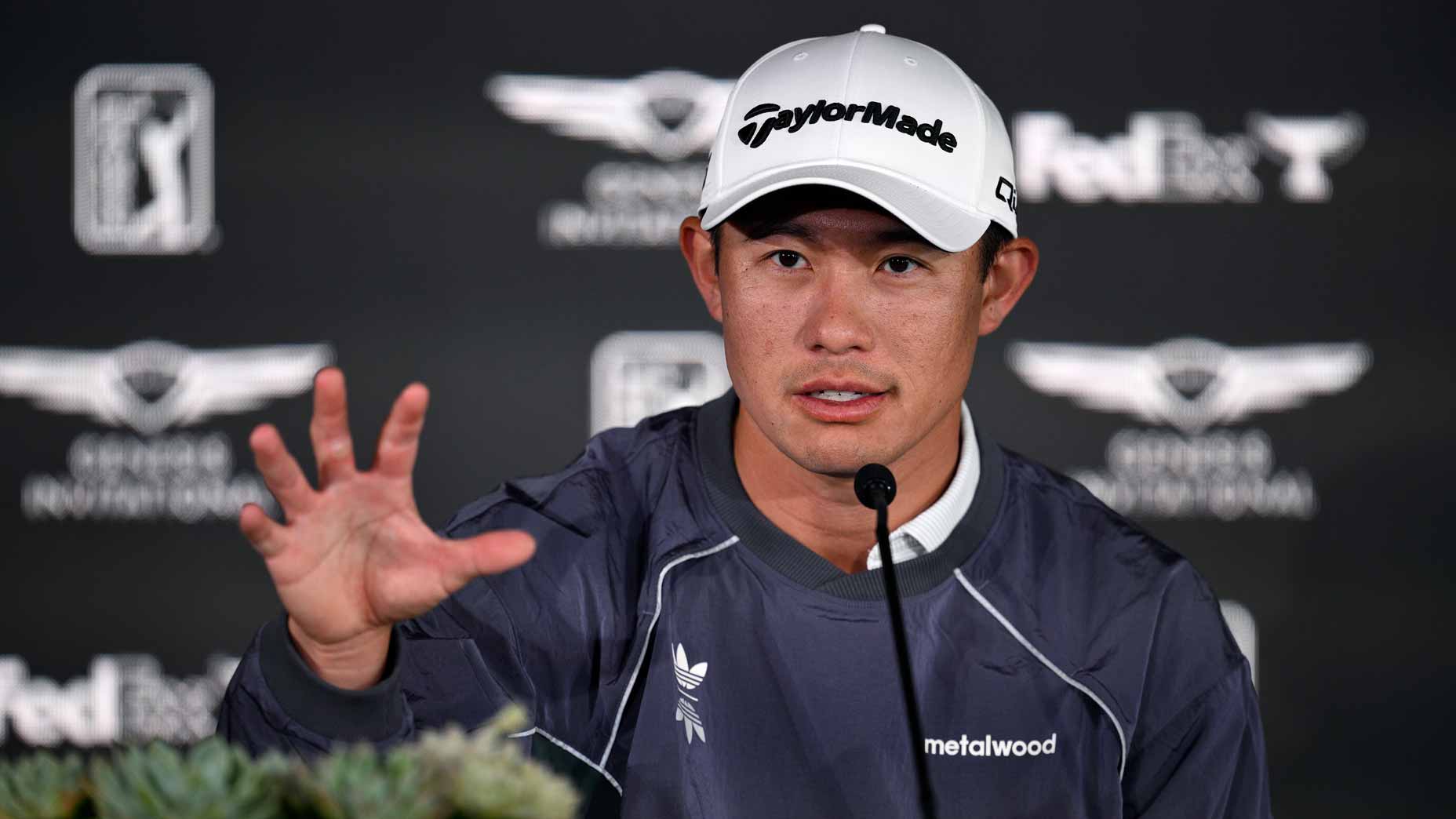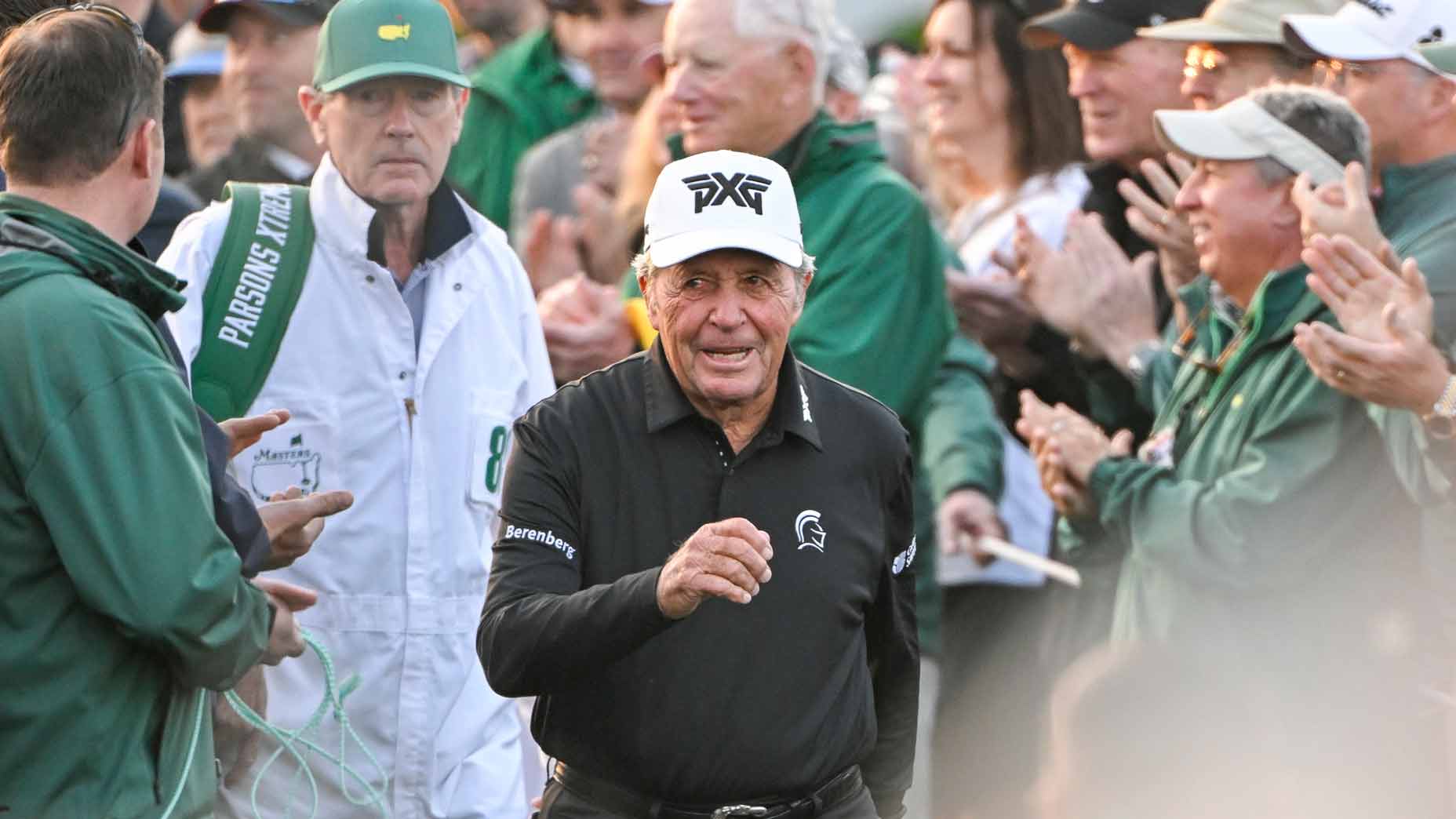Scottie Scheffler is a Masters champion yet again.
For anyone who’s paid attention to golf lately, this doesn’t come as a huge surprise. Scheffler arrived at Augusta National with two wins and a second place in his last three starts. Ever since he switched to a mallet putter at Bay Hill, he’s looked unstoppable.
Most of that dominance can be attributed to his ball-striking. From tee to green, no one on Earth had more success than Scheffler this season (or last). He’s gaining 2.8 strokes per round from tee to green, which is a shot better than his nearest competitor.
This week at the Masters was more of the same. Scheffler hit 64 percent of greens in regulation and hit 79 percent of fairways. However, while the ball-striking was terrific, Augusta National demands more from a golfer than the ability to hit the shots. It requires that they make the correct decisions, too.
“It comes down to hitting good shots and managing your way around the golf course,” Scheffler said this week. “I think it’s a lot easier said than done for sure.”
Scheffler put on a masterclass in that regard on his way to victory. And on Sunday, when the stakes were at their highest, he made two decisions that helped him win the green jacket.
Second shot on No. 11
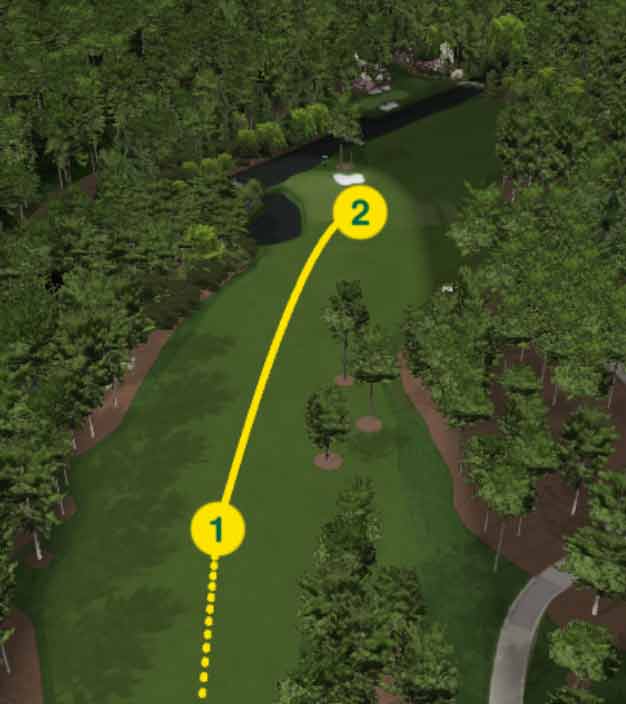
Augusta National’s 11th hole — White Dogwood — is the most difficult on the entire course. The hole had a stroke average of 4.39 this week as it yielded just 17 birdies compared to 107 bogeys or worse, and much of that can be attributed to the treacherous approach shot.
With water guarding the front left of the green, it’s important to play a shot to the right to avoid penalty. Two contenders — Ludvig Aberg and Collin Morikawa — learned this lesson the hard way on Sunday, as they tugged their approaches into the hazard and made double bogeys. Scheffler did not meet the same fate — and that’s because he played away from the trouble.
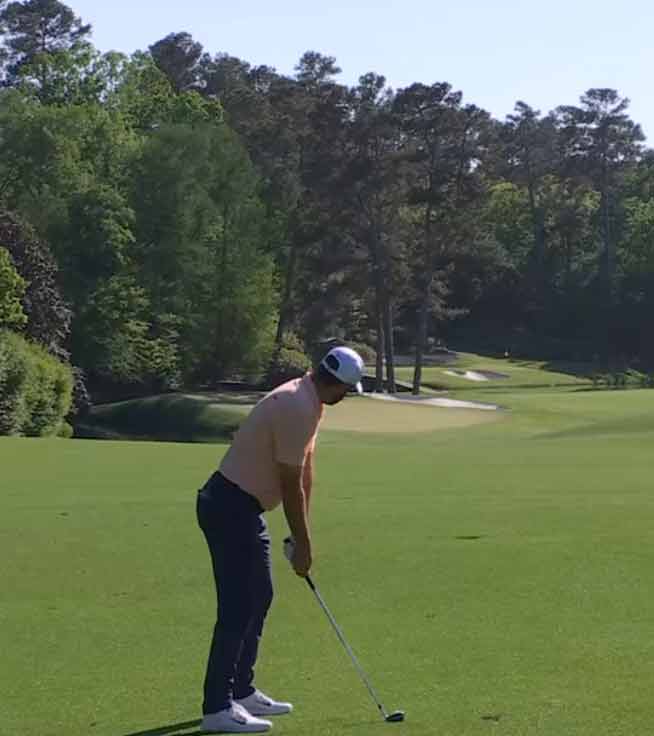
With the Sunday pin in its typical spot during the final round, it can bait players into getting greedy and firing at the stick. But as we’ve seen so many times, it’s a fool’s errand to aim at the flag at the 11th. Seasoned veterans know the play is at the right side of the green, leaving a long two-putt or at worst a chance at an up-and-down.
Scheffler followed that playbook to perfection, aiming right and taking the water out of play. He didn’t hit his best shot on Sunday and his ball ended up farther right than he would’ve liked, but since he aimed away from trouble, he made sure that the absolute worst score he would make was 5.
In the end, Scheffler did make a bogey 5 (he missed a short par putt). But with two other contenders making 6, he actually gained strokes with the bogey.
Tee shot on No. 12
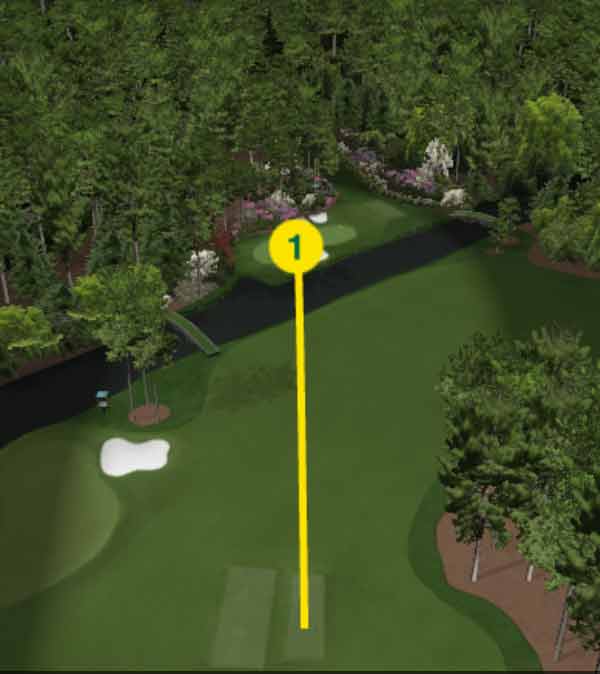
Augusta National’s 12th hole may be the most diabolical par-3 in all of golf. Competitors rarely have more than a short iron in their hands, but the hole still can give them fits.
Look no further than the final round of the 2019 Masters, for example. When the contenders stepped up to that tee, many found Rae’s Creek. It’s not often that pros find trouble with such little club in their hands, but at No. 12, it happens all the time.
The difficulty of the hole during final rounds is that the far right pin position begs players to take aim at it. With a short iron or wedge in hand, pros are hard wired to think about making birdie. But as soon as they make that decision on No. 12, it brings trouble into play.
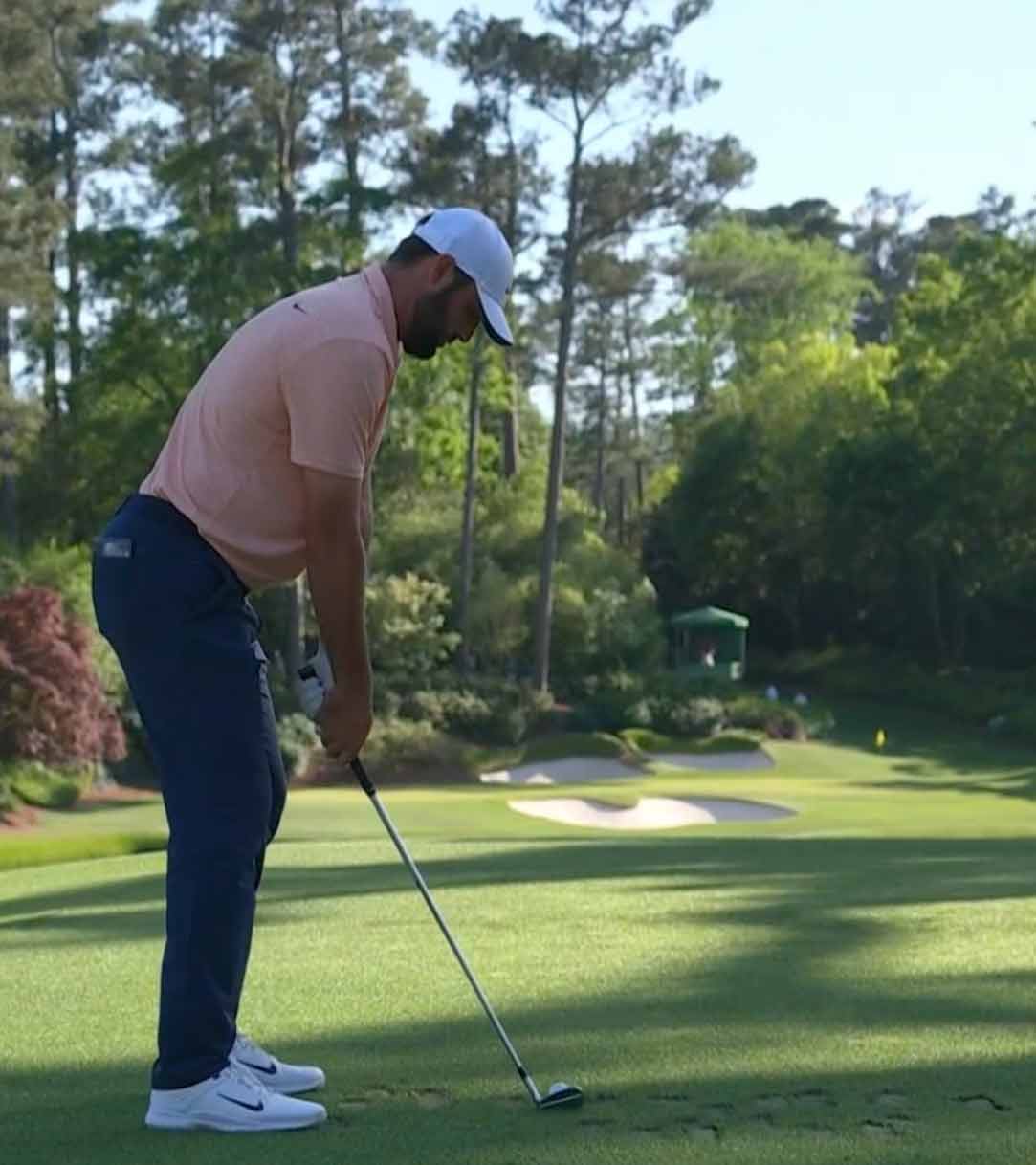
Most right-handed players will try to hit a fade to the right pin. But because of how the green sits, and where Rae’s Creek cuts in front of the putting surface, anything less than a perfectly struck shot invites trouble. If the shot isn’t hit well, or the wind knocks it down just a touch, the ball will often hit on the bank short of the green and roll back into the water.
Scheffler knows this fact well, and it’s why he didn’t even think about taking aim at the flag. Instead, he took his medicine, aimed over the bunker in the middle of the green and played his shot 50 feet left of the flag.
“You have to play to the correct spot and hit really good golf shots,” Scheffler said. “I did that to the best of my abilities today and was fortunately able to hit some really key shots.”
Once Scheffler’s ball found dry land on No. 12, he all but locked up the green jacket. If he weren’t so savvy in his decision making, it might be a different story, but thanks to these two key decisions, he made sure that he was the man to beat.
